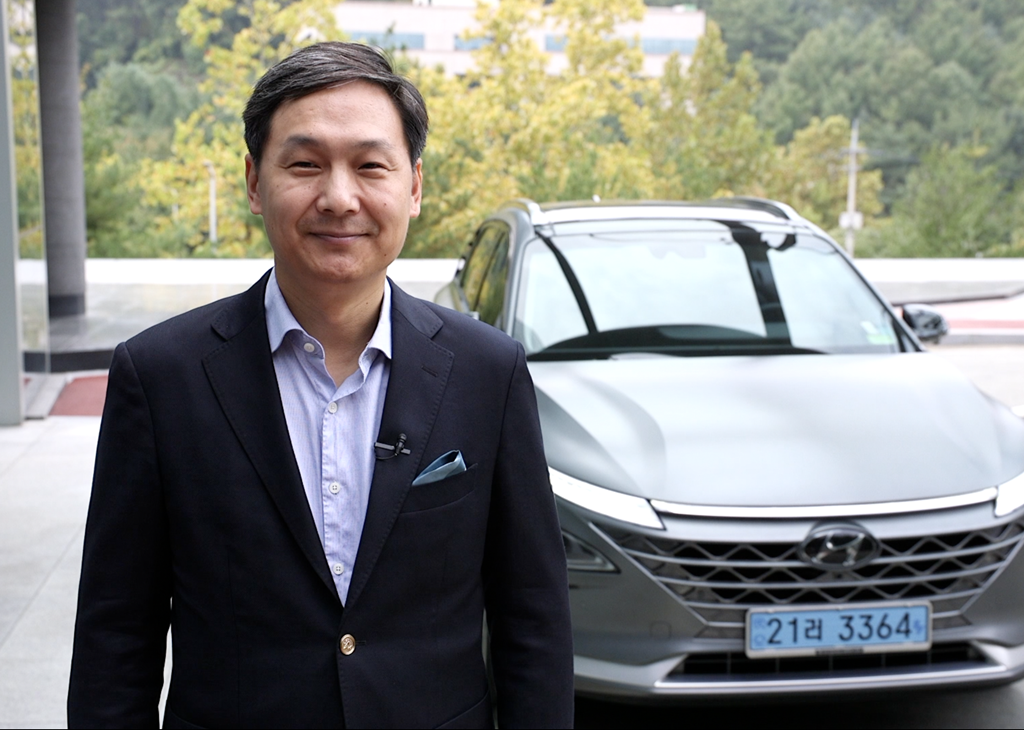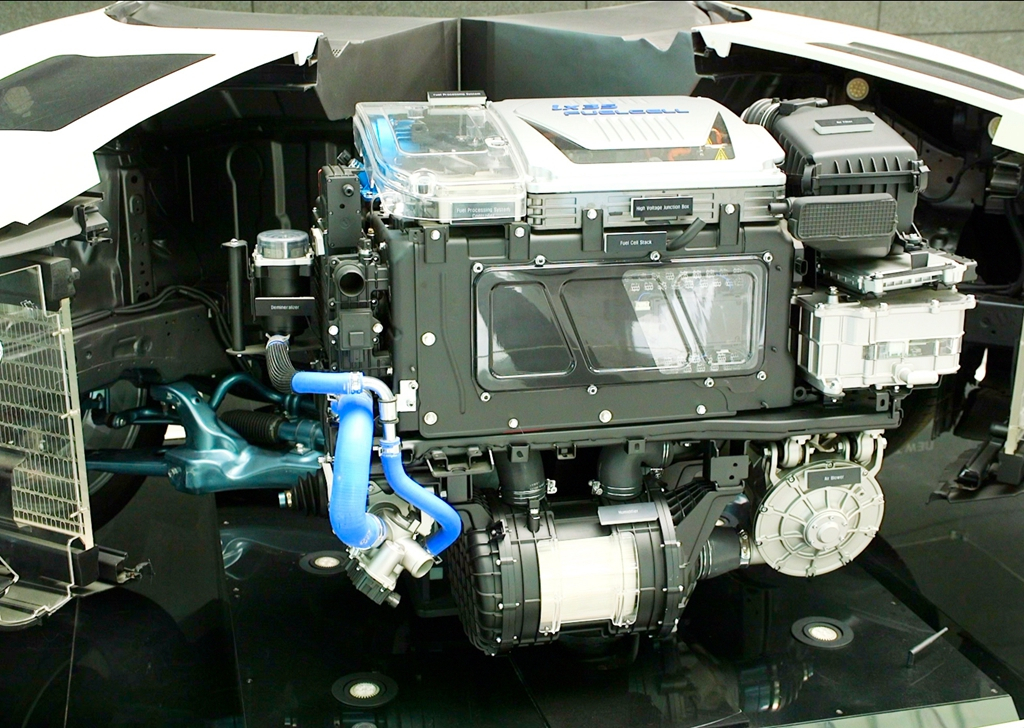South Korea has vowed to boost the number of battery- and hydrogen-powered electric cars on its roads to a third of all vehicles by 2030.
The announcement last month by the Ministry of Trade, Industry and Energy came as car manufacturers around the world raced to go green amid a tightening of regulations on greenhouse gases, blamed by many scientists for the Earth's warming atmosphere.
With more than two million electric cars and almost 344,000 electric buses, China is the world's largest market by far for battery powered vehicles.
"Environmental issues have become very big in China and the Chinese government is approaching deploying better EVs in the future," says Suh Kyung-won, head of Hyundai Fuel Cell Test Team, while standing in front of the company's flagship hydrogen vehicle, the NEXO.

Suh Kyung-won, head of Hyundai Fuel Cell Test Team. /CGTN Photo
Suh Kyung-won, head of Hyundai Fuel Cell Test Team. /CGTN Photo
Hyundai now believes that hydrogen vehicles will play a major role in greening the auto industry due to the technology's longer range and smaller size.
The move represents a change in gears that echoes consumer concerns surrounding the limitations of battery vehicles.
"I love this car but the problem is the battery is taking up so much space in the trunk room," says Korean Kia hybrid driver Hyowon standing next to the car with its trunk open, revealing a cramped baggage area.
A hydrogen fuel cell, which combines hydrogen and oxygen to make electricity, delivers power directly to the wheels, which means there is no need for cumbersome batteries.
"There is enough room to live with battery and hydrogen EV but the fuel cell can drive further and the charging time is much faster, around five minutes," says Suh.
But there are major obstacles to overcome.
While a fuel cell generates carbon free power, hydrogen is energy intensive to make and some parts of the process create carbon even when green technologies like solar and wind are utilized for most aspects of production.

A fuel cell engine. /CGTN Photo
A fuel cell engine. /CGTN Photo
"In the future we need to focus on producing green hydrogen rather than grey hydrogen with the current technologies," acknowledges Suh.
Hydrogen is also notoriously difficult to store as well as transport and is highly explosive.
Despite this, Hyundai, along with some other carmakers, believes hydrogen will be the future, but says the private sector cannot go alone when it comes to initial infrastructure roll out.
"At the initial stage, there definitely needs to be some government support," says Suh.
South Korean President Moon Jae-in has endorsed the building of 660 pumps by 2030.
Japan says it has the backing of 30 nations to build 10,000 refilling station worldwide and China has reportedly set a target to have more than a million fuel cell vehicles on its roads next year that can top up at more than 1,000 planned refueling stations.